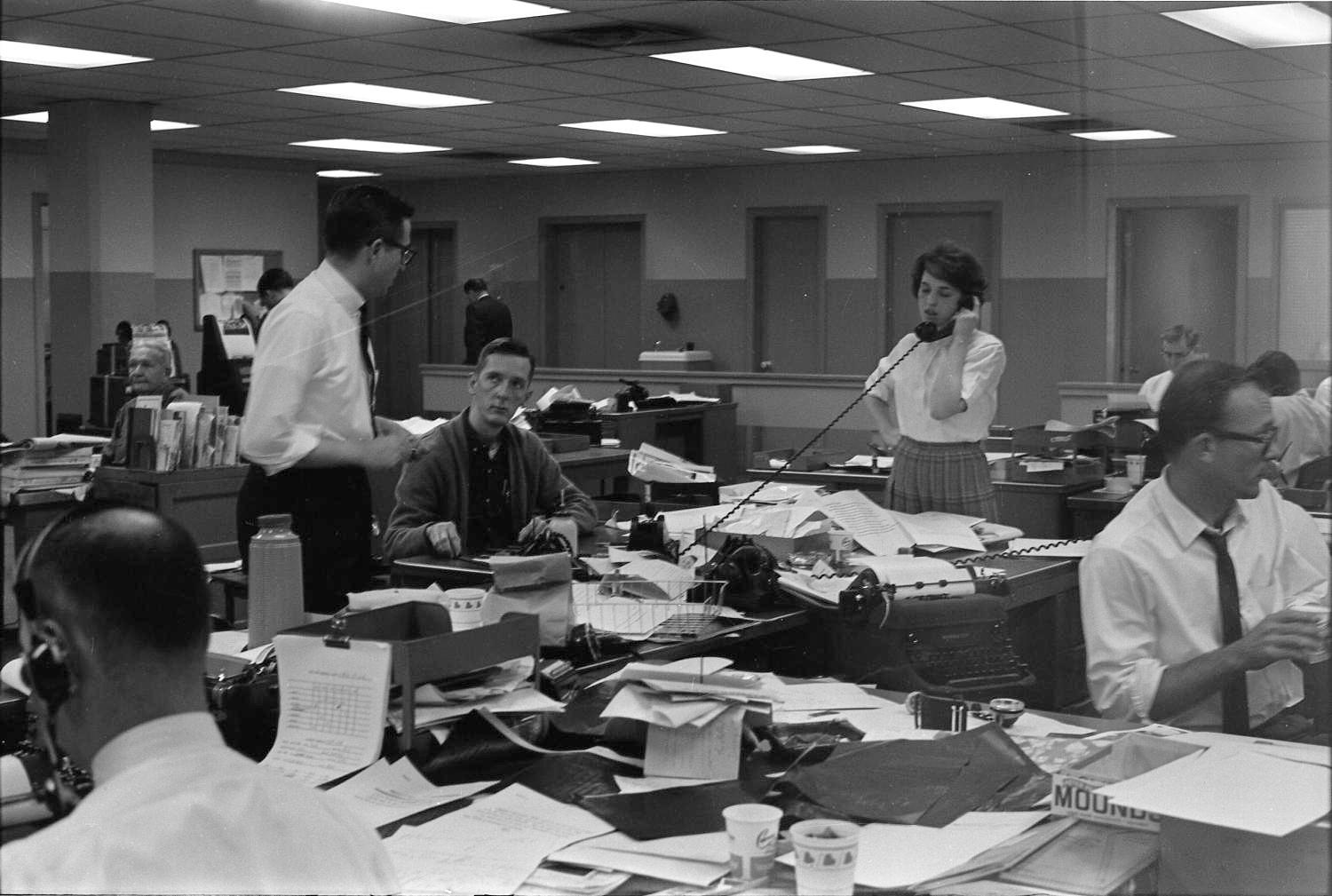KU students were a rowdy bunch, even in the mid 1960s (or especially in the mid-1960s). I recounted how they hung football coach Jack Mitchell in effigy because of his team’s string of losses. When a boxy replacement was announced for gothic and universally beloved Fraser Hall, students walked a picket line and sought a moratorium on a decision. Alas, at that they were unsuccessful, and I miss what is now remembered as Old Fraser. The Student Peace Union picketed the Military Science building around the clock to protest the spreading U.S. involvement in Vietnam (the vigil flopped, its leader bemoaning the apathy of KU students).
But the granddaddy of all protests began at 10:30 on the morning of March 8, 1965. Seventy members and supporters of the KU Civil Rights Council marched unannounced into the office of Chancellor W. Clarke Wescoe, their numbers spilling into the corridor of Strong Hall. I must have been right behind them or known of this in advance—I cannot recall—because their appearance got me a rare front-page byline in that afternoon’s Star and the next morning’s Kansas City Times.
Fraternities and sororities at KU then were tightly segregated into ones for whites, blacks and Jews. Wescoe had stated for years that he would stand by any Greek organization that broke the segregation barrier (or as I stated in my piece, “pledges a Negro”). The Civil Rights Council sought for Wescoe to immediately abolish discriminatory practices and require of Greek organizations that they sign notarized statements of nondiscrimination.
At first, Wescoe refused to meet with the entire group, preferring instead to talk to its five leaders in a nearby conference room. But rebuffed, he gave in and a civil but emotional dialogue began. Word quickly got around, and soon the hallway was clogged with what I estimated to be 125 protestors. Among those drawn to the confrontation was my fiancé and soon-to-be wife, Maggie Hughes.
The whole affair was quite orderly. Regarding the demand for nondiscrimination statements, Wescoe said, “This university has said that disclaimer affidavits are distasteful and contrary to the principle of academic freedom.” To which Nate Sims, president of the CRC, replied. “You have made statements which sound good to Caucasians but not so good to Negroes.”
On and on this went until Wescoe demanded that people leave by 5 p.m. Of course, that was taken as a dare. Campus and city police moved in and arrested 110 people, charging them with disturbing the peace. Maggie said her heart was with the CRC, but she left before police moved in.
This was a big story for that time. Only months earlier, the calm across American college campuses had ended with the historic eruptions at the University of California at Berkeley, which became known as the Free Speech Movement. The sit-in and arrests at KU came right on the heels of that.
Who should drive on campus the next morning in his little Triumph sports car but Harry Rosenthal, a star reporter for the Associated Press. Harry parked his car illegally and walked straight to Wescoe’s office, gaining an immediate interview. For his spunk and confidence, I became an instant admirer of the man. I thought to myself, so this is how it’s done in the big time?
I expected that the Douglas County attorney would quietly drop the changes, which were minor misdemeanors. But no, the protests must not have gone over well with voters because Ralph King scheduled all the cases for trial that May. It turned out not to be a good idea. A jury was chosen to decide the fate of the first three defendants. Wescoe was one of many who testified, for more than half an hour. And when the jury returned after almost three hours of deliberation, it announced an acquittal of all three defendants. Humbled, King asked that charges against the other 107 students be dismissed. Thank you, everyone, because the verdict got me more front-page bylines in the Star and Times. I guess you have concluded by now the truth, which is that I measured my march through life then by the number of times I landed on the front page.
Of course, in the end, nothing changed at KU, at least not in my time. It seems quaint in today’s cable-news and opinion-disguised-as-news-analysis world, but I held to the belief than my opinions had no place whatever in news stories I wrote. As with Maggie, however, I privately rooted for the Civil Rights Council and its goals. Unlike Maggie, however, I was a Greek, belonging to Kappa Sigma. I wasn’t brave enough to leave over the overt discrimination we practiced, but I’ve wished all my adult life that I had.
